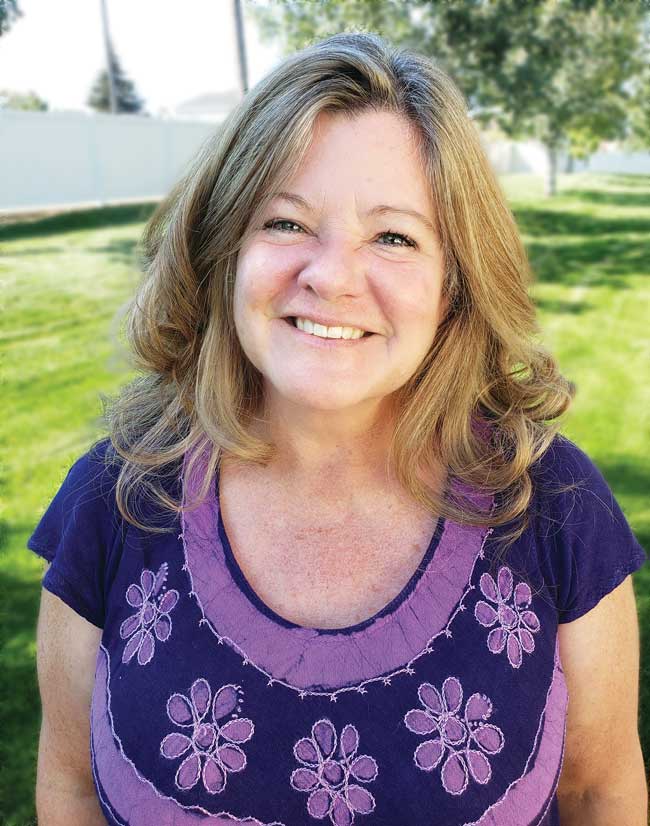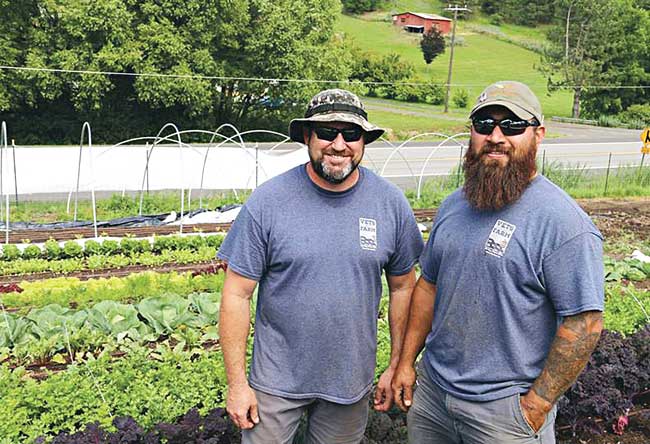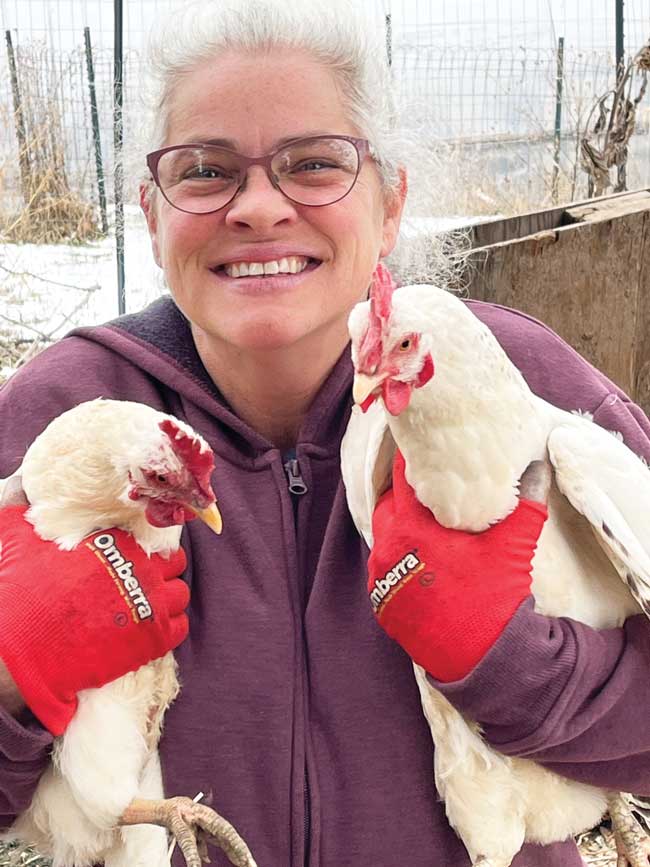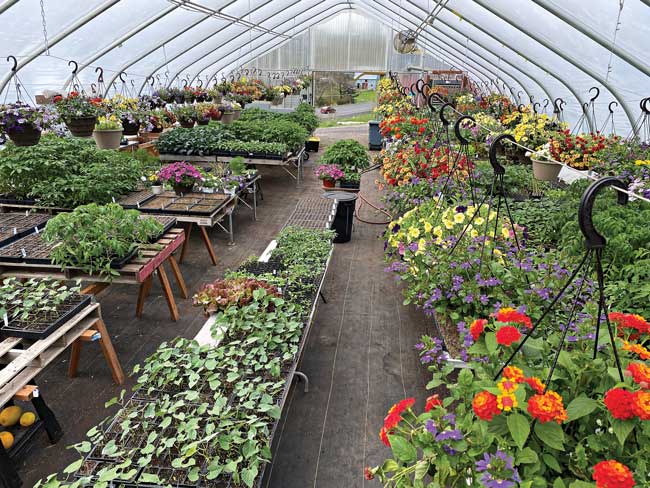 We Americans are assured of security and safety thanks to men and women who have made countless sacrifices by serving in the armed forces. We could never do enough to thank them for their service. But we can do our best to support Veterans when they return to civilian life.
We Americans are assured of security and safety thanks to men and women who have made countless sacrifices by serving in the armed forces. We could never do enough to thank them for their service. But we can do our best to support Veterans when they return to civilian life.
Vets on the Farm is one local program that aims to do just that. I had the pleasure of speaking with one of the farm managers of Vets on the Farm. Air Force Veteran Grant Weber explained the history, mission, and work of Vets on the Farm, as well as his personal experience with the program.
Vets on the Farm is the brainchild of Vicki Carter, Director of Spokane Conservation District. It all started when Vicki saw a need for support of post-9/11 Veterans who were having trouble transitioning into civilian life after their service.
Vicki also noticed that local farmers were getting older, with few young farmers to replace them.
Vicki put two and two together and created a model of a program that would support Veterans, and hopefully, bring new men and women into the field of agriculture. By networking with the farmers and the community, Vicki garnered the support she needed to get the farm started. In 2016, the Emtman brothers of Emtman Brothers Farm saw the value of such a program and donated three acres and a house just south of l-90 off of the Palouse Highway. With financial support from Agriculture West and others, Vets on the Farm was born.
However, according to Grant, “The farm is just one small spoke of the whole program,” which is clear in the threefold program goals: transition, connect, and cultivate.
Vets on the Farm helps Veterans transitioning into civilian life “through careers in agriculture, farming, ranching or other conservation-based industries.” This goal is reached through education and employment opportunities.
At the same time, Vets on the Farm offers a platform for those who have served to connect with each other, as well as others in the agriculture and conservation industry. As Grant tells me, “Connecting with vets is a huge thing. We’ve all been there. We understand each other.”
The term cultivate can mean preparing and using the land for crops, but it also means developing a skill. Vets on the Farm partners with Washington State University (WSU) Extension and Spokane Community Colleges for agricultural and conservation-based education, leading to a 12-week course certification, or to an Associate’s Degree.
One of the greatest outcomes of the program isn’t explicitly stated in its goals, but is clear when you listen to Grant and others share their experience with Vets on the Farm. Working with the land and connecting with other Veterans is therapeutic. In one interview, Vicki Carter notes that these former military personnel are becoming “creators and nurturers again. There’s healing in that.”
A Ritzville native, Grant Weber is an example of how Vets on the Farm is reaching its goals. Grant retired after 21 years of service in the Air Force, having been based all around the world and completing six tours of duty in the Middle East. Grant shares a first-hand account of the challenges for vets transitioning.
“I knew that I wanted to do something in agriculture, but I just couldn’t find my way. You always have a mission when you’re in the military. You have a daily regimen of what you do every day, every week, every month. There’s always certain things that you need to be doing at certain times of the year or when you’re getting ready to deploy. When you get out, you don’t necessarily have that anymore. You’re not sure what direction you’re supposed to go in. So I had a hard time adjusting, filling all those voids.”
Grant started as a volunteer with Vets on the Farm. He was first hired on as part-time, then full-time, and is now a co-manager. I asked him to tell me about the farm.
“We grow over 20 different 100 percent organic vegetables on one acre, all by hand, no tractors. We’re inspected by the Washington State Department of Agriculture and certified yearly for Good Agricultural Practices (GAP). We have a greenhouse for seeds and starts, so it’s cradle to grave farming. We then sell the vegetables from May until the weather makes us stop. Every penny raised goes right back into the program.”
Grant adds that Vets on the Farm is also a “learning farm” for interns who haven’t served in the armed forces. “We just want to make farmers.”
The program’s definition of “farmer,” however, is as broad as one’s imagination for agriculture and conservation. Grant shares one example of a participant who was interested in bees. They started a bee class, and now have two hives to add to the vegetables.
Vets on the Farm also provides financial education and small loans to Veterans who are starting up their farm, ranch, or ag-related business.
If all of this weren’t enough, Vets on the Farm is a phone call away from helping neighboring farmers who are welcome to reach out and ask for help planting, building, or any need. “If a Veteran needs help, we throw bodies out there. We want to give back to our community who has supported us.”
For Veterans interested in the program, no training or experience is necessary. Just contact the farm directly by email at VetsontheFarm@gmail.com.
Anyone who wants to support VetsontheFarm can visit the website for more information about donating and volunteering. https://spokanecd.org/pages/vets-on-the-farm
Starting in May, you can also support the program by buying 100% organic produce at the Farm Stand, at 7524 S. Ellis Rd., Spokane, WA. Check the website for days and hours of operation. Also follow and visit their Facebook page for weekly fresh sheets. https://www.facebook.com/VetsOnTheFarm
If you want to learn more, check out these videos and interviews!
Northwest Profiles: Cultivating the Way Home
https://www.youtube.com/watch?v=bZATfUw9Ll8
Washington Grown’s Interview with Vicki Carter and Duane Zbranek
https://www.youtube.com/watch?v=hzCZHuvJ7SY
Rocks to Roots: The Conservation Conversation Podcast Interview with Grant Weber and Duane Zbranek
https://podcasters.spotify.com/pod/show/rockstoroots/episodes/Grant-Weber-and-Duane-Zbranek-from-Vets-on-the-Farm-e14n6l8
Amy McGarry, a Spokane Valley native, has been a regular Huckleberry Press contributor since 2018 and is the author of two memoirs: I am Farang: Adventures of a Peace Corps Volunteer in Thailand, and Culture Clash: My Marriage to a Moroccan Muslim.





